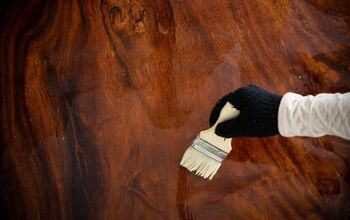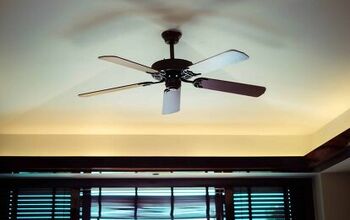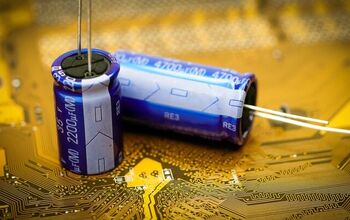How To Stop Hair From Going Down The Drain

It is crazy how much hair a human loses each day, especially when they are in the shower! It is not uncommon for hair to constantly fall down the drain, and plug it up, which can cause a wide variety of issues. But what do you do to keep the hair from going down the drain in the first place?
You can install a drain catcher to catch any hair that falls through. Or, you can wear a shower cap, brush your hair before you get in the shower, and regularly use cleaning agents to keep your drain clean. Doing this will help prevent possible health issues, especially for people with asthma and allergies.
Having hair clog your drain is extremely frustrating, especially when it causes plumbing problems. Below, we provide you with a wide variety of ways to solve the problem so that you don’t end up having to call a professional for help later on.
How To Stop Hair From Plugging Your Drain
There are numerous reasons why a clogged drain is annoying; not only does it keep water from flowing how it should or stop up your drains, but it can harm your loved ones who have a significant allergy or asthma issues.
The stagnant water and debris are breeding grounds for mold and mildew. Not to mention, your bathroom isn’t going to smell very good because the build-up of bacteria will make it smell.
For this one, prevention is unquestionably preferable to treatment. What should you do to stop hair from becoming stuck in your plugholes?
1. Use A Shower Cap When You Are Showering
Preventing hair from entering your drains in the first place is one of the most excellent methods to keep them clear of hair. You should tie your hair up by using a shower cap. It will prevent it from clogging your drains.
You can also try pulling your hair up in a bun or a pony tail while taking a shower or bath if you don’t have a shower cap.
You can wash your hair first, then stop it up in a cap. Refrain from brushing your hair while in the shower, so you don’t have so much. Or, take the clumps and toss them to the side so you can throw them in the trash when you are done.
2. Brush Your Hair Before You Wash It
What if you have to wash your hair and are unable to use a shower cap? By combing it before you take a shower, you can still cut back on the quantity of hair that falls down the drain.
Before entering the bathtub or shower, combing should help you get rid of the dead hair. Doing this won’t allow it to enter your tub or the drain.
While washing your hair, you should also gather the hair that falls out into your palms. Instead of letting it wash down the drain, you can gather it on the edge of the shower as stated in the section before this.
3. Utilize A Drain Cover Or Trap
To prevent hair from traveling down the drain, you can buy a variety of drain catchers and hair-catching covers for your bathtub.
The barrier that these covers form over the drain allows water to drain but stops hair and other material from going down the drain and clogging your pipes.
Like kitchen sink strainers, these coverings sit over or within your drain and can be removed and cleaned as needed. Some of these are made to fit tubs with immovable pop-up drain plugs.
4. Use A Wire Mesh Strainer In Your Shower
Depending on your drain’s form, you might use a cheap kitchen drain filter that fits more significant drains in your bathtub.
If you want to prevent hair as well as other debris from traveling down the drain, you need a strainer made of wire mesh with a few tightly spaced apertures.
This will only function if your bathtub or shower has a drain that empties directly into the ground and does not include a permanent plug.
5. Clean Your Drains Naturally
A drain cleaner could be required to unclog the drain and start the grey water flowing if a sink, tub, or shower starts draining slowly or stops entirely.
Try the traditional vinegar and baking soda technique if you prefer handmade measures. Pour a tea kettle full of hot water down the drain, followed by a gallon of boiling water, a dab of dishwashing liquid, 1 cup of baking soda, and 1 cup of vinegar.
As it just dissolves the built-up muck in the pipe that is “hanging onto” the clog, this might not work with a seriously clogged drain.
6. Use Chemicals To Clean Your Drain
Hair, built-up filth, and other obstructions are removed using liquid drain cleansers like Liquid-Plumr. However, if sewage and water are backing up in other areas of the house when you flush the toilet or take a shower, you definitely need a professional.
You will need them to clear the drains and pipes since the obstruction or tree branches may be in the primary sewer pipe connecting the house to the public sewer system.
If you use a strainer to catch the remaining hair, prevent as much of it from reaching the tub drain as you can, and then routinely apply a drain cleaner or clog-preventing solution on your pipes, you shouldn’t have a clogging issue in your tub or shower.
7. Wash Your Hair Outside Of The Shower
While you are shampooing and conditioning your hair in the shower, some hair will inevitably fall out, but there are several measures you can try to keep hairs out of your drains initially.
Before you get in the shower, you can wash your hair. Stand over a towel, and make sure your hair is nice and brushed. Then, get it wet, lather it up, and rinse it in a bowl or clean bucket. Do the same with the conditioner.
After you’ve washed your hair outside of the tub, put on a hair cap so that you won’t run the risk of hair falling down your drain.
Can I Let My Hair Go Down The Drain?
Hair accumulation will block the drain. Over time, hair will accumulate in the drain and start to slow down an extensive sewage system.
This results in further issues like:
- The sink won’t drain
- The tub won’t drain
- Stagnant water in your pipes
- The buildup of mold and mildew
- Hair accumulation traps germs. Tresses in the plughole act as a net to catch debris, filth, and anything else that flows down the drain.
- A buildup of hair may cause a leak to begin. A pipe leak could lead to mold and mildew growth, among other issues.
- The bathroom will stay damp.
- Your bathroom will stink. These drains will begin to accumulate on the hair, where they begin to proliferate bacteria and smell. A stinkybathroom is the absolute worst.
- Hair accumulation could cause allergies to flare up. The buildup of spores, mold, and bacteria in the pipe could be hazardous to your health. People who have allergies and asthma should be aware of this in particular.
Wrapping It Up
Grab a hold of flyaway hairs on the verge of falling down the drain. You should fish them out right away while they are still clean and accessible.
They will smell very different and be covered in filth in a month. They will also be highly challenging for you to retrieve from the drain!

Heather is a passionate writer who loves anything DIY. Growing up, she learned everything from home repairs to design, and wants to share her tips with you. When she's not writing, she's usually hiking or searching for her next DIY project.
More by Heather Robbins












![10 Best Cordless Leaf Blowers – [2022 Reviews & Ultimate Guide]](https://cdn-fastly.upgradedhome.com/media/2023/07/31/9070789/10-best-cordless-leaf-blowers-2022-reviews-ultimate-guide.jpg?size=350x220)
![10 Best Zero Turn Mowers – [2022 Reviews & Ultimate Buyer's Guide]](https://cdn-fastly.upgradedhome.com/media/2023/07/31/9070522/10-best-zero-turn-mowers-2022-reviews-ultimate-buyer-s-guide.jpg?size=350x220)





![How To Reset A Whirlpool Cabrio Washer [In 5 Easy Steps!]](https://cdn-fastly.upgradedhome.com/media/2023/07/31/9076531/how-to-reset-a-whirlpool-cabrio-washer-in-5-easy-steps.jpg?size=350x220)







